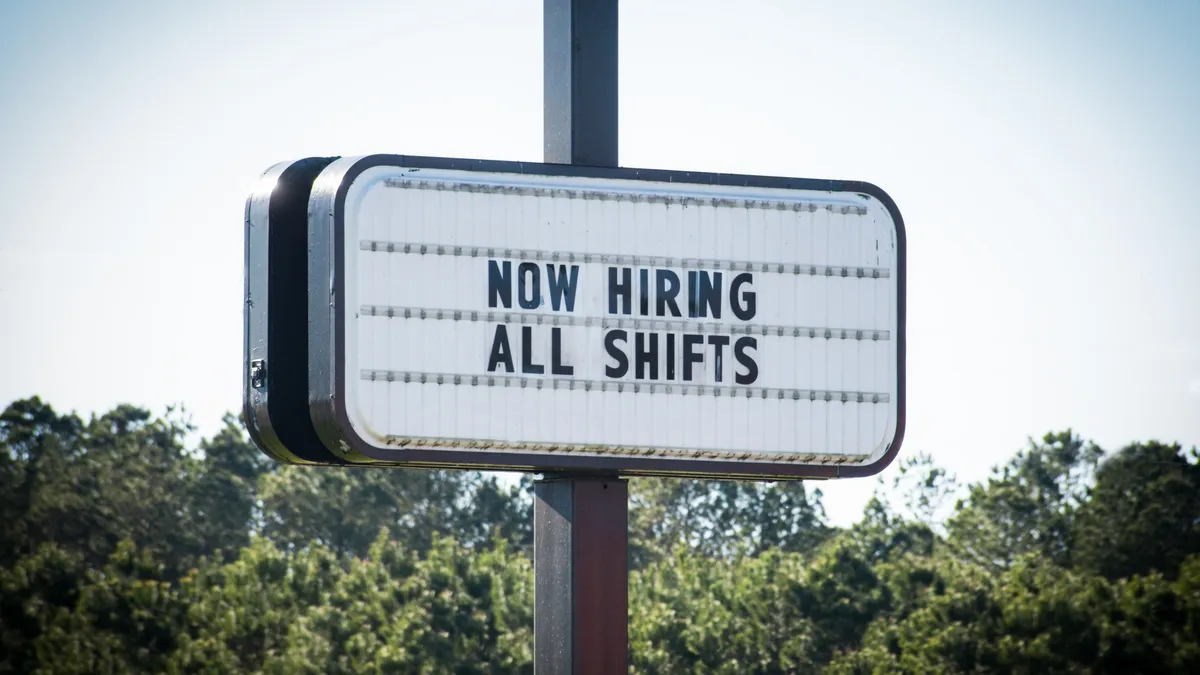Correction: In a previous version of this article, Bill Armstrong was misidentified. He is the president of recruiting at Safeguard Global.
2023 brought with it uncertainty on the talent front. Fears of a recession led some companies to pause hiring and others, notably in Big Tech, to undertake massive layoffs.
But that unease likely won’t carry into the new year, hiring experts said.
Employers were nervous about a recession and “waiting for the other shoe to drop” in 2023, according to Bill Armstrong, president of recruiting at Safeguard Global, a professional staffing and consulting firm. But now those fears are waning, he said.
“I think people put a hold on some of those hiring budgets in 2023, but now they've got the money in Q1. I think we’re going to see a little bit of an uptick in Q1, because there is a little pent-up demand there,” Armstrong said.
Typically, when the tech industry has layoffs, other industries follow, Armstrong said. But that wasn’t the case in 2023, with companies holding onto workers they had struggled to hire after the height of the COVID-19 pandemic.
“Everybody else took a wait and see approach. You got this market that sort of stagnated a little bit, but you never saw that huge spike in the unemployment rate. You still saw a lot of job creation, and I think that's because people were so burned during the pandemic,” Armstrong said.
Employees in the driver’s seat
While the labor market is stabilizing a bit, “it’s still really clear that employees and candidates still have bargaining power,” said Lexi Clarke, chief people officer at Payscale, a compensation and data company.
“They're looking for caring leaders who respect autonomy and flexibility. But overarchingly, I think they're also looking for workplaces that really reflect their values that fit with their personal mission,” Clarke said. “They're going to be looking for jobs that fit their lives, rather than bending their lives to fit their jobs.”
For HR leaders, that means adjusting total rewards packages to show flexibility to meet those expectations, Clarke said. Instead of a one-size-fits-all benefits package, companies will need to offer flexible packages that are more inclusive and varied, she said.
Damon Klotz, director of talent and analyst relations at Culture Amp, an employee experience platform, said perks and benefits likely won’t be “the reason companies win talent this year.”
“As candidates look for their next role in 2024, they will more likely ask about company culture, team engagement and how they can ensure they would work under a great manager,” Klotz said.
Most contract negotiations are centered on flexibility, Armstrong said. Workers are asking for remote or hybrid arrangements, to have shorter workweeks or, if they do have to be in the office, to have a flexible schedule.
“It's still a very tight labor market. People that have jobs feel like those jobs are stable jobs. It's hard to get them to leave to take another job,” Armstrong said. “Good candidates are getting multiple offers.”
Candidates also are looking for training and development and career pathing, as well as pay transparency in job postings, Clarke said.
“While the economy has really softened, we're seeing that workers are really unwilling to make concessions on anything as it relates to fair pay and wellbeing,” Clarke said.














